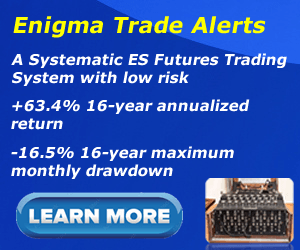Most traders have been guilty of over-adjusting a position at one time or another. There are many reasons we have fallen prey to making premature adjustments outside our trade plans. This article will touch on some of the reasons a trader pulls the trigger before the time of the planned adjustment.
What are some of the reasons a trader may adjust prematurely?
- A trader perhaps hasn't done enough back testing on a particular strategy before trading with live capital. Therefore, the trader doesn't feel confident enough in the trade's flexibility to work as intended. If a trader isn't totally confident that the strategy is workable as per the trade plan, any “blip” in the profit & loss figures can prompt a premature adjustment. More often than not, the “blip” reverses back to the norm and it turns out the adjustment was not needed after all.
- Another cause for adjusting early may be that the trader has a reason to doubt his/her ability to stick with the trade plan. This could be due to inexperience, or to a negative experience, in which he/she did not stay on track with the plan. If you have found this to be the case, perhaps writing down and checking the plan each time you are tempted to make an early adjustment might help.
- Another cause of over-trading is the trader might be trading too large of a position for his/her comfort level or account size. This can make the trader uncomfortable in volatile market conditions . If this is the reason, there is a very simple solution. If you can't sleep at night and see trading screens flashing across your vision and hear an alarm going off in your head, then it is most definitely time to reduce your position size. The trader caught in this uncomfortable situation probably can't think clearly, and is highly prone to the deer-in-the-headlights syndrome if a true adjustment point is reached.
What is the adjustment in this case of a trader being in over his/her head with a position which is too large?
Regardless of the strategy being traded, if you find yourself in the uncomfortable position of trading too large for your account size and/or comfort level, the actual adjustment will vary by strategy. However, the basic goal should be the same: reduce the risk in the trade.
Remember, the best traders think in a number of unique ways. They have acquired a mental structure that allows them to trade without fear and, at the same time, keeps them
from becoming reckless and committing fear-based errors.”
When IS it acceptable to adjust before your pre-set adjustment point?
There are times when making an early adjustment can benefit a position The adjustment in this case may be a temporary hedge to “patch” the position until the normal adjustment level is reached.
- Upcoming major economic news, particularly over a weekend. We've all been through those Monday morning gaps where, in hindsight, it would have been a wise decision to hedge the position in some way because of a news event over the weekend while the US market is closed.
- A break of major support or resistance levels in the underlying for your position may be a reason to adjust, or at least put a patch on the position, to see if the move reverses. It's possible that this hedge may be removed if the move continues and the normal adjustment trigger point is reached.
- Any concern about the stability of your broker's platform after a major update may be a reason to adjust early or at least hedge a position. There is nothing more frustrating than having a trading platform that is unreliable when the market is moving against a position and you are unable to place orders to adjust.
In summary, there really is never a “right” or “wrong” time to adjust a position. It is the combination of experience , comfort level with one's own trades, and trade plan that creates a successful trader over the long run. We all develop our own style of trade management; no two styles are exactly alike.
Do you any comments on the pros and cons of early adjustments? Feel free to comment.


